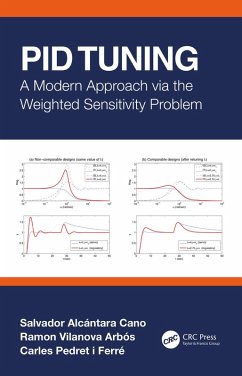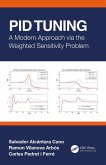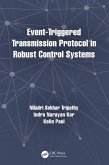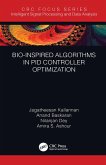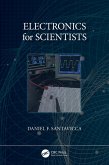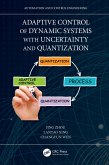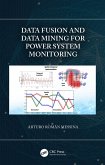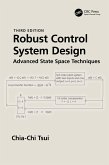Salvador Alcántara Cano, Ramon Vilanova Arbós, Carles Pedret I Ferré
PID Tuning (eBook, ePUB)
A Modern Approach via the Weighted Sensitivity Problem
48,95 €
48,95 €
inkl. MwSt.
Sofort per Download lieferbar

24 °P sammeln
48,95 €
Als Download kaufen

48,95 €
inkl. MwSt.
Sofort per Download lieferbar

24 °P sammeln
Jetzt verschenken
Alle Infos zum eBook verschenken
48,95 €
inkl. MwSt.
Sofort per Download lieferbar
Alle Infos zum eBook verschenken

24 °P sammeln
Salvador Alcántara Cano, Ramon Vilanova Arbós, Carles Pedret I Ferré
PID Tuning (eBook, ePUB)
A Modern Approach via the Weighted Sensitivity Problem
- Format: ePub
- Merkliste
- Auf die Merkliste
- Bewerten Bewerten
- Teilen
- Produkt teilen
- Produkterinnerung
- Produkterinnerung

Bitte loggen Sie sich zunächst in Ihr Kundenkonto ein oder registrieren Sie sich bei
bücher.de, um das eBook-Abo tolino select nutzen zu können.
Hier können Sie sich einloggen
Hier können Sie sich einloggen
Sie sind bereits eingeloggt. Klicken Sie auf 2. tolino select Abo, um fortzufahren.

Bitte loggen Sie sich zunächst in Ihr Kundenkonto ein oder registrieren Sie sich bei bücher.de, um das eBook-Abo tolino select nutzen zu können.
PID Tuning: Weighted Sensitivity Problem presents an H8 design which avoids some of the limitations of the IMC method, devised to work well for plants of modest complexity, for which analytical PID tuning is plausible. To alleviate the usual difficulties, plain H8 weighted sensitivity problem has been used.
- Geräte: eReader
- mit Kopierschutz
- eBook Hilfe
Andere Kunden interessierten sich auch für
![PID Tuning (eBook, PDF) PID Tuning (eBook, PDF)]() Salvador Alcántara CanoPID Tuning (eBook, PDF)48,95 €
Salvador Alcántara CanoPID Tuning (eBook, PDF)48,95 €![Event-Triggered Transmission Protocol in Robust Control Systems (eBook, ePUB) Event-Triggered Transmission Protocol in Robust Control Systems (eBook, ePUB)]() Niladri Sekhar TripathyEvent-Triggered Transmission Protocol in Robust Control Systems (eBook, ePUB)60,95 €
Niladri Sekhar TripathyEvent-Triggered Transmission Protocol in Robust Control Systems (eBook, ePUB)60,95 €![Bio-Inspired Algorithms in PID Controller Optimization (eBook, ePUB) Bio-Inspired Algorithms in PID Controller Optimization (eBook, ePUB)]() Jagatheesan KallannanBio-Inspired Algorithms in PID Controller Optimization (eBook, ePUB)23,95 €
Jagatheesan KallannanBio-Inspired Algorithms in PID Controller Optimization (eBook, ePUB)23,95 €![Electronics for Scientists (eBook, ePUB) Electronics for Scientists (eBook, ePUB)]() Daniel SantaviccaElectronics for Scientists (eBook, ePUB)35,95 €
Daniel SantaviccaElectronics for Scientists (eBook, ePUB)35,95 €![Adaptive Control of Dynamic Systems with Uncertainty and Quantization (eBook, ePUB) Adaptive Control of Dynamic Systems with Uncertainty and Quantization (eBook, ePUB)]() Jing ZhouAdaptive Control of Dynamic Systems with Uncertainty and Quantization (eBook, ePUB)47,95 €
Jing ZhouAdaptive Control of Dynamic Systems with Uncertainty and Quantization (eBook, ePUB)47,95 €![Data Fusion and Data Mining for Power System Monitoring (eBook, ePUB) Data Fusion and Data Mining for Power System Monitoring (eBook, ePUB)]() Arturo Román MessinaData Fusion and Data Mining for Power System Monitoring (eBook, ePUB)60,95 €
Arturo Román MessinaData Fusion and Data Mining for Power System Monitoring (eBook, ePUB)60,95 €![Robust Control System Design (eBook, ePUB) Robust Control System Design (eBook, ePUB)]() Chia-Chi TsuiRobust Control System Design (eBook, ePUB)49,95 €
Chia-Chi TsuiRobust Control System Design (eBook, ePUB)49,95 €-
-
-
PID Tuning: Weighted Sensitivity Problem presents an H8 design which avoids some of the limitations of the IMC method, devised to work well for plants of modest complexity, for which analytical PID tuning is plausible. To alleviate the usual difficulties, plain H8 weighted sensitivity problem has been used.
Dieser Download kann aus rechtlichen Gründen nur mit Rechnungsadresse in A, B, BG, CY, CZ, D, DK, EW, E, FIN, F, GR, HR, H, IRL, I, LT, L, LR, M, NL, PL, P, R, S, SLO, SK ausgeliefert werden.
Produktdetails
- Produktdetails
- Verlag: Taylor & Francis eBooks
- Seitenzahl: 154
- Erscheinungstermin: 19. November 2020
- Englisch
- ISBN-13: 9781000208528
- Artikelnr.: 60541399
- Verlag: Taylor & Francis eBooks
- Seitenzahl: 154
- Erscheinungstermin: 19. November 2020
- Englisch
- ISBN-13: 9781000208528
- Artikelnr.: 60541399
- Herstellerkennzeichnung Die Herstellerinformationen sind derzeit nicht verfügbar.
Salvador Alcántara Cano graduated in Computer Science & Engineering and then obtained the MSc and PhD degrees in Systems Engineering & Automation, all from Universitat Autònoma de Barcelona, in 2005, 2008, and 2011, respectively. During his short-lived research career, he focused on PID control and the analytical derivation of simple tuning rules guided by robust and optimal principles. He also made two research appointments with Professors Weidong Zhang and Sigurd Skogestad, almost completed a degree in Mathematics, and held a Marie Curie postdoctoral position in the Netherlands. Back in Barcelona, "Salva" worked as an automation & control practitioner for one more year, before definitively shifting his career into software development. Apart from programming and DevOps in general, his current interests include Stream Processing, Machine Learning, and Functional Programming & Category Theory.
Ramon Vilanova Arbós graduated from the Universitat Autònoma de Barcelona (1991), obtaining the title of Doctor through the same university (1996). At present, he's Full Professor of Automatic Control and Systems Engineering at the School of Engineering of the Universitat Autònoma de Barcelona where he develops educational task-teaching subjects of Signals and Systems, Automatic Control, and Technology of Automated Systems. His research interests include methods of tuning of PID regulators, systems with uncertainty, analysis of control systems with several degrees of freedom, applications to environmental systems, and development of methodologies for the design of machine-man interfaces. He is an author of several book chapters and has more than 100 publications in international congresses/journals. He is a member of IFAC and IEEE-IES. He's also a member of the Technical Committee on Factory Automation.
Carles Pedret i Ferré was born in Tarragona, Spain, on January 29, 1972. He received the BSc degree in Electronic Engineering and the PhD degree in System Engineering and Automation from Universitat Autònoma de Barcelona, in 1997 and 2003, respectively. He is Associate Professor at the Department of Telecommunications and System Engineering of Universitat Autònoma de Barcelona. His research interests are in uncertain systems, time-delay systems, and PID control.
Ramon Vilanova Arbós graduated from the Universitat Autònoma de Barcelona (1991), obtaining the title of Doctor through the same university (1996). At present, he's Full Professor of Automatic Control and Systems Engineering at the School of Engineering of the Universitat Autònoma de Barcelona where he develops educational task-teaching subjects of Signals and Systems, Automatic Control, and Technology of Automated Systems. His research interests include methods of tuning of PID regulators, systems with uncertainty, analysis of control systems with several degrees of freedom, applications to environmental systems, and development of methodologies for the design of machine-man interfaces. He is an author of several book chapters and has more than 100 publications in international congresses/journals. He is a member of IFAC and IEEE-IES. He's also a member of the Technical Committee on Factory Automation.
Carles Pedret i Ferré was born in Tarragona, Spain, on January 29, 1972. He received the BSc degree in Electronic Engineering and the PhD degree in System Engineering and Automation from Universitat Autònoma de Barcelona, in 1997 and 2003, respectively. He is Associate Professor at the Department of Telecommunications and System Engineering of Universitat Autònoma de Barcelona. His research interests are in uncertain systems, time-delay systems, and PID control.
Foreword. Preface. Authors. 1. Introduction. 2. Simple Model-Matching Approach to Robust PID Control. 3. Alternative Design for Load Disturbance Improvement. 4. Analysis of the Smooth/Tight-Servo/Regulation Tuning Approaches. 5. H Design with Application to PI Tuning. 6. Generalized IMC Design and H2 Approach. 7. PID Design as a Weighted Sensitivity Problem. 8. PID Tuning Guidelines for Balanced Operation. Appendix A. Bibliography. Index.
Foreword. Preface. Authors. 1. Introduction. 2. Simple Model-Matching Approach to Robust PID Control. 3. Alternative Design for Load Disturbance Improvement. 4. Analysis of the Smooth/Tight-Servo/Regulation Tuning Approaches. 5. H Design with Application to PI Tuning. 6. Generalized IMC Design and H2 Approach. 7. PID Design as a Weighted Sensitivity Problem. 8. PID Tuning Guidelines for Balanced Operation. Appendix A. Bibliography. Index.
